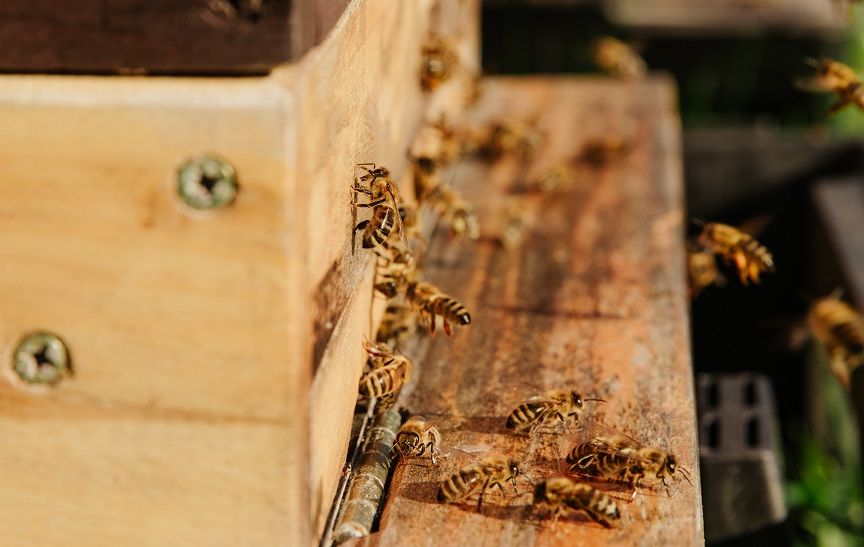How Climate Change Is Affecting bees
Bees are tough little creatures, able to thrive almost anywhere – the only place in the world without beehives is Antarctica. But as climate change brings on extreme weather patterns, temperature changes and rising sea levels, even this adaptable species is being affected.
Climate change is already contributing to declining populations of honeybees and other bee species, thanks to reduced habitats and changing patterns of plant growth over the seasons.
For humans, loss of bees doesn’t just mean pricier honey – bees are also responsible for pollinating almost a third of the plants we rely on for food. Without robust bee populations, these food sources – including coffee, apples, berries, almonds, broccoli, and melons – could end up being far more expensive to grow, or even die out altogether. It’s just one of the reasons climate change is the issue of our time.
Here’s how the climate is affecting our bees – and how you can help:
Loss of habitat
For bees, habitat loss isn’t about the physical space they need to live, it’s also about the range of plant species available for them to feed on. Climate change can make it more difficult for some species of plant to thrive in certain areas, affecting food supplies for bees. Native bees in Australia are particularly vulnerable to loss of habitat, as some species only feed on one or two types of plant.
Of course, climate change isn’t the only cause of habitat loss – human development and clear-felling of forests and bush are also important factors.
Temperatures and seasonal timing
As average temperatures rise around the globe, delicate ecosystems are thrown out of balance. Higher temperatures mean that flowers may bloom weeks or months earlier than usual or bloom for shorter periods. Bees, who have adapted to an extremely specific pattern of pollen and nectar availability, can be seriously affected by even small changes to seasonal plant growth.
Just a shift of a week can harm bee health, as less pollen can mean poorer nutrition and reduced resistance to disease.
Weaker bees mean more disease
Bees – particularly honeybees – are affected by many different parasites and diseases. Although Australian beekeepers don’t have to worry about Varroa mites, these tiny invaders do affect bees in other places around the world. Nosema parasites, which cause intestinal problems, and American Foulbrood Disease are also seriously damaging, leading to colony collapse if left untreated.
Although climate change doesn’t directly cause disease or parasite infestations, it can make colonies weaker and more vulnerable to infection. Research shows that the Nosema parasite also seems to thrive in higher temperatures, which means that climate change will likely help it spread.
Wild weather and extreme heat
Aside from gradually rising average temperatures, climate change is also leading to more extreme weather patterns around the world. In Australia, extreme heat has made devastating bushfires more frequent, while flooding, hurricanes, and droughts are increasing in other places.
These natural disasters can have an obvious effect on honeybees and natives, wiping out habitats, destroying hives and burrows or simply killing off bees in their thousands. Long periods of extreme heat can also affect some bee species – bumblebees in particular seem to be affected by high temperatures.
How you can help
Climate change is a huge, global issue that can’t be solved by any one person. In a small way, you can help bees in your area by planting a diverse range of bee-friendly plants that bloom throughout the year. If you’re a beekeeper, you can do your best to prevent the spread of parasites and bee diseases, and set up your hives to protect your colonies from extreme weather.
Of course, these aren’t long-term solutions for the climate change issue. For most people, advocating for policies and voting to fight climate change is the only solution likely to have a real, long-term impact.
Want to know more about protecting bees from extreme weather?Talk to the team at Ecrotek.

